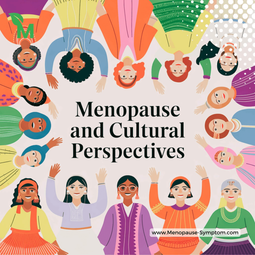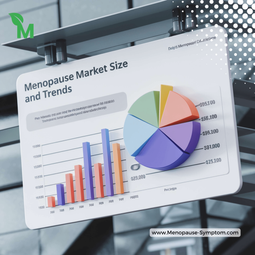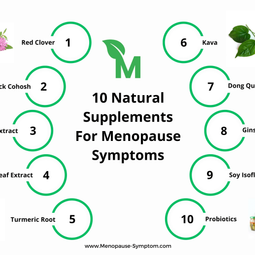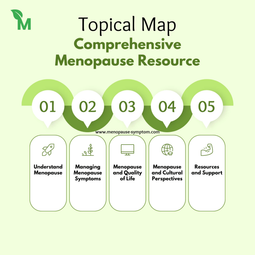Menopause is not a disease. It's a rite of passage, a transition to be honored and celebrated.
The Unspoken Journey
Menopause is a natural biological process that affects every woman, yet it remains shrouded in mystery and misconception across many cultures. As women, we've long been conditioned to view this transition with apprehension, often internalizing societal stigmas that paint it as a loss of youth, vitality, and even femininity. But it's time to challenge these notions and embrace a more empowering perspective on menopause.
The Cultural Tapestry of Menopause
Western Perspectives
In many Western societies, menopause has historically been viewed through a medical lens, often portrayed as a condition that needs to be "treated" or "managed." This medicalization has led to a focus on hormone replacement therapy and other interventions, sometimes overshadowing the natural aspects of this life stage.
However, there's a growing movement to reframe menopause as a natural and potentially empowering phase of life. Many women are now speaking out about their experiences, challenging the notion that menopause is something to be dreaded or hidden.
Eastern Philosophies
Contrast this with some Eastern cultures, where menopause is often viewed more positively. In Japan, for instance, the term "konenki" is used to describe menopause, which translates to "renewal years" or "energy change." This perspective emphasizes the potential for growth and new beginnings that come with this life transition.
In traditional Chinese medicine, menopause is seen as a natural shift in the body's energy balance. Rather than focusing solely on symptom management, this approach emphasizes overall wellness and balance through diet, herbs, and lifestyle adjustments.
Breaking Down Myths and Misconceptions
Let's address some common myths about menopause that persist across various cultures:
Myth: Menopause marks the end of a woman's sexuality.
Reality: Many women report increased sexual satisfaction post-menopause, free from concerns about pregnancy and often with a deeper understanding of their bodies.
Myth: Menopause always comes with severe symptoms.
Reality: While some women experience significant symptoms, others transition with minimal discomfort. Each woman's experience is unique.
Myth: Menopause means the end of a woman's productive years.
Reality: Many women find this phase of life to be one of increased creativity, productivity, and personal growth.
The Power of Changing Perspectives
By challenging these myths and embracing a more positive view of menopause, we can significantly impact how women experience this transition. Research has shown that cultural attitudes can influence the severity of menopausal symptoms. In cultures where menopause is viewed more positively, women often report fewer and less severe symptoms.
Embracing the Change
So, how can we shift our perspective and embrace menopause as a natural and potentially empowering phase of life?
Education and Open Dialogue
Knowledge is power. By educating ourselves and others about the realities of menopause, we can dispel myths and reduce anxiety. Encouraging open conversations about menopause in our communities can help break down taboos and provide support for women going through this transition.
Celebrating Wisdom and Experience
Many cultures have traditionally revered older women for their wisdom and experience. Let's reclaim this perspective. Menopause can be seen as a transition into a phase of life where we can leverage our accumulated knowledge and experiences to make meaningful contributions to our families, communities, and society at large.
Self-Care and Holistic Approaches
While medical interventions have their place, there's growing recognition of the benefits of holistic approaches to managing menopause. This can include:
Nutrition: A balanced diet rich in phytoestrogens, calcium, and vitamin D can help manage symptoms and support overall health.
Exercise: Regular physical activity can help maintain bone density, manage weight, and improve mood.
Mindfulness practices: Techniques like meditation and yoga can help manage stress and improve overall well-being.
A Call for Cultural Shift
It's time for a cultural shift in how we view and talk about menopause. By reframing this transition as a natural and potentially empowering phase of life, we can help women approach it with confidence rather than fear.
"Menopause is not just an ending, but a beginning - a gateway to a new chapter of life filled with possibility and potential."
As women who have experienced or are approaching menopause, we have the power to change the narrative. By sharing our stories, challenging negative stereotypes, and embracing this transition with positivity, we can pave the way for future generations of women to view menopause not as a loss, but as a gain - a gain in wisdom, freedom, and self-understanding.
Embracing the Journey
Menopause is a universal experience for women, yet cultural attitudes and beliefs about it vary widely. By examining and challenging these perspectives, we can work towards a more positive and empowering view of this life transition.
Let's embrace menopause as a natural and potentially transformative phase of life. By doing so, we not only improve our own experiences but also contribute to a cultural shift that can benefit women for generations to come. Remember, menopause is not the end of anything - it's the beginning of a new and exciting chapter in a woman's life journey.
Source: Team MPS compiled, analyzed and wrote. Please dont reup without source of us. Many thanks.

Menopause And Cultural Perspectives
Invalid Date

Menopause Market Size And Trends
Invalid Date

10 Natural Supplements For Menopause Symptoms
Invalid Date

